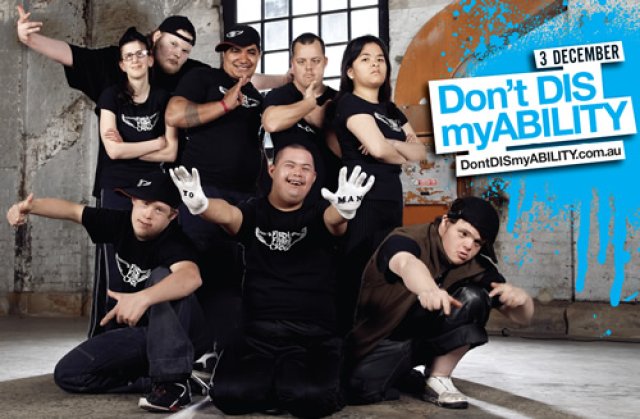
Australia is one step closer towards embracing disability as part of human diversity. On February 28 the Australian Government Productivity Commission released a draft report on Disability Care and Support.
If the general recommendations of the report were to be implemented, people with disability, their families and carers would achieve a much-needed improvement to their lives, albeit starting in 2014-15.
The report recommends a doubling of funding to the disability support system based on 2009-2010 spending, financed from general revenue.
The report notes, “the current disability support system is underfunded, unfair, fragmented, and inefficient, and gives people with a disability little choice and no certainty of access to appropriate supports.”
The draft report recommends a National Disability Insurance Scheme (NDIS) and reflects critical aspects of the demands of the disability rights movement.
People with disabilities, their families and carers, have promoted the idea of a NDIS for a number of years. This has most recently culminated in the Every Australian Counts campaign, which is overwhelmingly funded by the disability services industry.
The campaign was initiated by three national organisations, Carers Australia, the Australian Federation of Disability Organisations and National Disability Services.
Sections of the disability rights movement are critical of aspects of the campaign, as recommendations to have the campaign directed by people with disability were not supported.
The draft report recommends more choice and agency for people with disability in their support and service needs, including the option for self-directed funding. The disability rights movement has welcomed this.

However, other recommendations are contrary to the demands of the movement. One of these is the governance and monitoring of any new disability support system.
Article 4.3 of the UN Convention on the Rights of Persons with Disabilities (UNCRPD) states: “In the development and implementation of legislation and policies to implement the present Convention, and in other decision-making processes concerning issues relating to persons with disabilities, States Parties shall closely consult with and actively involve persons with disabilities, including children with disabilities, through their representative organisations.”
Representative organisations, often referred to as Disabled People’s Organisations (DPOs), are so considered if the governing body and membership of an organisation is made up of a majority of people with disability.
The movement has demanded that DPOs are part of the governing structure of any new disability care and support system.
Instead the draft report recommends that the governing structure of a new authority, the National Disability Insurance Agency, must not include people with disability or DPOs and relegates them to an advisory group.
Obvious issues of concern are eligibility, structural barriers, advocacy and equity.
It will be up to the disability rights movement to combine efforts around these critical issues, to influence the national campaign as expressed through the Every Australian Counts messages, website and activities.
The movement has been calling for eligibility to a NDIS to be all-inclusive with support and services to be assessed on need. However, the report recommends a three-tiered system, with the third tier effectively covering 360,000 people out of 4 million people with disability. Serious questions need to be asked as to what will happen to those covered in the first two tiers.
Of equal concern is the permanent residency requirement. Australia would not meet its human rights obligations if it denied disability services to humanitarian entrants.
From a human rights perspective the movement has been arguing for a whole-of-government approach to undermine structural and systemic barriers preventing people with disability to equally participate and enjoy daily life, especially as this relates to housing, transport and social life.
The National Injury Insurance Scheme (NIIS) is proposed as a separate scheme to cover people with catastrophic disability, including acquired brain injury, multiple amputations and severe burns.
A big issue now is the difference in levels of services, support and equipment people receive if they acquired a disability by birth or through a catastrophic accident. Any new separation needs to guarantee that such differences are no longer maintained.
Remarkably absent from the report is the role of independent advocacy. The report suggests that so-called Disability Support Organisation may play that role. However, the DSOs are also meant to provide advice and even deliver services, reflecting a conflict of interest.
The report also recognises and makes reference to cultural and faith-based specific needs, which are broad and non-committing. But language needs are absent altogether.
One quarter of the 4 million with disability are from a non-English speaking or culturally diverse background. Other productivity commission reports show that people from such backgrounds under-use disability services. It is clearly inequitable not to enshrine dedicated strategies and benchmarks to guarantee improvements.
The second round of submissions are due by the end of April and the productivity commission is charged to present its final findings to the government in July.
Pressure needs to be increased now to ensure that a new scheme will bring human rights and dignity to people with disabilities.
Comments
Anonymous replied on Permalink
Anonymous replied on Permalink
Anonymous replied on Permalink